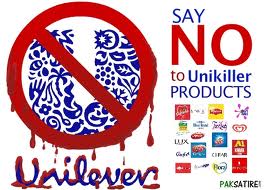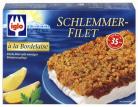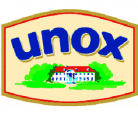 UNILEVER
BOYCOTT
UNILEVER
BOYCOTT UNILEVER
BOYCOTT
UNILEVER
BOYCOTTUnilever - biggest owner of coffee plantations in Africa. Unilever turnover exceeds the gross national product (GNP) of all countries in the so-called third world and less developed countries. Unilever is one of the world's top makers of packaged consumer goods and moves countless products like deodorants, fragrances, soap, margarine, tea and frozen foods all over the world. Child labor, unsustainable terms of trade, and corporate influence are among the most troubling offenses carried out by the company. The corporation sells products in over 150 countries and has annual sales of approximately 46 billion USD. Unilever is one of the world's top three food firms together with Nestlé and Mondelēz, and the world's second largest packaged consumer goods company Ė behind Procter & Gamble. Unilever was formed in 1930 when the Dutch margarine company Margarine Unie merged with British soapmaker Lever Brothers. Since they 1984 take over the tea company Brocken Bond including its plantations in Kenia, Malawi and Tansania, Unilever became the biggest owner of tea plantations in Africa. Workers (mainly women) on tea plantations in general get extremely low wages and their living conditions are appalling. Meanwhile companies, like Unilever, which do the blending, packaging and marketing of the tea (in the consumer countries) cream off 30-50% of the retail price. Unilever's last big corporate acquisitions were Best Foods and Ben & Jerry's (2000), and Alberto-Culver (2010). In 2015, under leadership of Paul Polman, the company gradually shifted its focus toward health and beauty brands and away from food brands showing slow growth. In 2021, Unilever sold most of its tea business to the private equity CVC Capital Partners for 5.1 billion USD with the exception of Pepsi Lipton ready-to-drink tea joint ventures and its tea business in Asia, where Lipton black teas are popular. Debt loading, asset stripping and job cuts are part of the sad story of private equity buy-outs.
Unilever and Kodaikanal scandal
 |
In March 2001, residents of Kodaikanal, a pretty hill retreat in Southern India, caught the Anglo-Dutch multinational Unilever red-handed when they uncovered a dumpsite with toxic mercury-laced waste from a thermometer factory run by Unilever's Indian subsidiary Hindustan Lever (HUL). The 7.4 tons of crushed mercury-containing glass was found in torn sacks, spilling onto the ground in a busy scrap yard located near a school. Despite the visible evidence, Mr. Subramaniam, HUL's export marketing manager, dismissed charges of indiscriminate dumping. "No hazardous wastes have left the factory site," he said. The expose, which led to a march to the factory gates by more than 400 residents from the area, joined by Greenpeace India, marked the beginning of an ongoing saga of dishonesty and botched cover-up efforts by Unilever. Mercury, the substance that Unilever is accused of handling without taking environmental or worker safety precautions, is a toxic metal that converts to deadlier forms such as methyl mercury when released into the environment. Mercury accumulates in the liver, kidneys, brain and blood and can cause birth defects and serious disorders of the nervous system and kidneys. In 2015, Indian rapper Sofia Ashraf released the music video "Kodaikanal Won't," to criticize Unilever for allegedly dumping mercury into waste ground at Kodaikanal. According to Unilever's statement, the factory had sold mercury-contaminated scrap glass to a local dealer, prompting HUL to immediately close the factory, plan the clean-up of the affected sites and monitor the health of its workers. Unilever is waiting since 2010 for the local government Tamil Nadu Pollution Control Board to give it permission for the clean-up. HUL signed a settlement on humanitarian grounds with former workers on March 4, 2016. |
Unilever and GMO labeling
 |
In the U.S. virtually all products containing derivatives of crops like corn, soy, canola and sugar from sugar beets will need GMO labels, as most of those crops in the United States are grown from genetically modified seeds. The labeling issue has generated heavy and frantic lobbying by the Grocery Manufacturers Association and the trade groups representing major commodity producers of crops like soy and corn, who have wanted a federal law that would prevent mandatory labels. One of them is Unilever, who spent 467,100 USD against ballot measure Proposition 37, the referendum to mandate GMO labeling in California that failed in 2012. Unilever says state labeling laws are costly and complex, echoing food-industry lobbyists who call GMO labeling a fad that violates free speech. The ice-cream maker Ben & Jerry's supported the GMO labeling law of Vermont against the world's biggest food companies, including its own corporate parent - Unilever. Ben & Jerry's has never shied away from speaking out on social issues, and Unilever, since acquiring the company in 2000, has not interfered. Since 1985, Ben & Jerry's has donated a portion of its profits to community projects across the U.S. That's why Ben & Jerry's is not included in our Unilever boycott product list. |
Unilever and rainforest destruction
 |
Expansion of palm oil plantations is the leading cause of rainforest destruction in Indonesia. Unilever, as the worldís biggest consumer of palm oil, is driving this expansion and as a result is fuelling rainforest destruction. For every 20 litres of palm oil produced in Indonesia, one litre ends up in Unileverís hands. The main problem is that Unilever continues to buy palm oil from suppliers (Sinar Mas, ADM-Kuok-Wilmar and IOI) who burn rainforest and drain peatlands that are protected under Indonesian law to clear space for more plantations. Having lost their homes, orang-utans are forced to look elsewhere for food and often palm plantations are the nearest source. Itís estimated that over 1600 orang-utans were killed on palm oil plantations in 2006 alone. |
Unilever and animal tests
According to the British Union for the Abolition of Vivisection (BUAV) animals including rabbits, rats, mice and piglets suffered as a result of the growing fascination with so-called "superfoods". Examples given by the BUAV include a Unilever experiment in which piglets were given an extract of Lipton's tea to see if it could counter diarrhoea caused by the Ecoli stomach bug. Eight of the month-old animals died, with severe diarrhoea to blame in at least seven of the cases. Unilever is also named by the BUAV for experiments involving Hoodia gordonii (CORR), a spiny cactus used by tribesmen of the Kalahari desert to stave off hunger pangs and seen as a potential appetite suppressant in the weight-conscious western world. Unilever said it does not test tea or tea-based products on animals. If tests are required by law for safety reasons, they are kept to a minimum and carried out by third parties.
Unilever and forced child labor
According to ActionAid, in 2003-4 over 80,000 children were employed in cotton seed production in southern India. According to the organization, children as young as nine years old are working 12-14 hours a day on the cotton seed farms. They are paid only 30p a day and are exposed to dangerous pesticides. They are supplying multinationals such as Unilever, Monsanto and Syngenta with cotton seed.
UNILEVER is basically an " Armada of brand names". The multinational owns many subsidiaries all over the world. Unileverís famous brands include Dove, Knorr, Lipton, Magnum, Omo, Cif, Slim-Fast, Birds Eye, Becel, Blue Band, Unox, Calve, Conimex and Lever2000.
DO YOU STILL WANT THAT SHIT? SEE THIS LIST| BIFI | |
 |
IGLO |
 |
FINDUS frozen food, only in Italy owned by Unilever |
 |
SLIM-FAST: Slim-Fast sells shakes (milk- or soy-based), drink powders, and snack bars through retailers in the US and Europe under the Slim-Fast and Ultra Slim-Fast names. As these names suggest, Slim-Fast capitalises on the needs of weight-conscious consumers. On 3 August 2000, Slim-Fast (voluntarily) recalled more than two million milk-based shakes, saying they may present a low risk of temporary gastrointestinal sickness and should not be consumed. The shakes were being pulled off supermarket shelves due to a "manufacturing problem". |
| ADES (soy-based drinks) | |
| soups - sauces | |
 |
KNORR |
 |
UNOX |
| LAWRY'S | |
| OXO | |
| LIPTON soups and sauces | |
 |
RAGU pasta sauce |
| margarine - vegetable oil - butter - spreads | |
| COLMAN'S (mustard) | |
| HOMANN | |
| BERTOLLI | |
| HELLMANN's (mayonnaise) | |
| BLUE BONNET BLUE BAND (sauces and soups) | |
| IMPERIAL | |
| LÄTTA (margarine) | |
| SANELLA | |
| BECEL | |
| SB | |
| Rama is world's most known brand of maragarine. | |
| FLORA SOFT | |
| DU DARFST | |
| BEST FOODS (mayonnaise) | |
| STORK (margarine) | |
| MONDAMIN | |
| CREME BONJOUR (Sweden, Finland) | |
 |
FLEISCHMANN'S |
 |
SKIPPY peanut butter |
| ice cream | |
| BREYERS | |
| QUEBON | |
 |
The Heartbrand companies (ice cream): ALGIDA (Greece/Hungary/Italy/Poland/Turkey) ESKIMO (Austria/Czech Republic) FRIGO (Spain) FRISKO (Denmark) GB GLACE (Sweden/Finland) GOOD HUMOR (USA) HB (Ireland) LAGNESE (Germany) LUSSO (Switzerland) MIKO (France) OLA (Belgium/Netherlands/Portugal/South Africa) WALL'S (Great Britain and parts of Asia) |
| CREAMSICLE | |
| FUDGSICLE | |
| BEN&JERRY'S | |
| POPSICLE | |
 |
KLONDIKE |
| REVELLO | |
| VIENNETTA | |
| MAGNUM (ice-cream) | |
| tea | |
| LIPTON TEA Lipton, world's biggest tea brand. In 2021, Unilever sold its global tea business to CVC Capital Partners Fund for 5.1 billion Euros, except in Asia and the Lipton-PepsiCo joint venture. The new business is called ekaterra and includes the famous brands LIPTON, PG TIPS, PUKKA, T2, and TAZO. | |
| home care | |
| SNUGGLE | |
| VIM | |
| SUNLIGHT | |
| WISK | |
| DOMESTOS | |
| OMO (Persil): Unileverís international-brand washing powder. Omo is a blue detergent powder launched in 1954, and became the Unilever spearhead in the synthetic detergent market. New Blue Star Omo was introduced at the end of March 1963. Today, Unilever is aggressively promoting Omo all over Asia and Africa, packaged in quantities down to 35 gram. Other washing powder brands of UNILEVER are: Persil, Skip, Sunlight, Sun, Vim and Surf. | |
| skin care - deodorants | |
| AXE | |
| DOVE | |
| LEVER2000 | |
| POND'S | |
 |
VASELINE |
| TIMOTEI | |
| LUX | |
| PEPSODENT | |
| FAIR & LOVELY: Unileverís subsidiary based in India, Hindustan Lever Limited (HLL) markets Fair & Lovely Skin Cream and Lotion, the largest selling Skin Care Product in India; a brand developed in India, and now exported to over 30 countries. Fair & Lovely is being promoted as a "fairness face cream" that will lighten your dark skin. Through their advertisements, Hindustan Lever spreads the message that a light skin is better than a dark skin. This type of advertisement promotes racism. It sends out the message that dark-skinned people are inferior. |